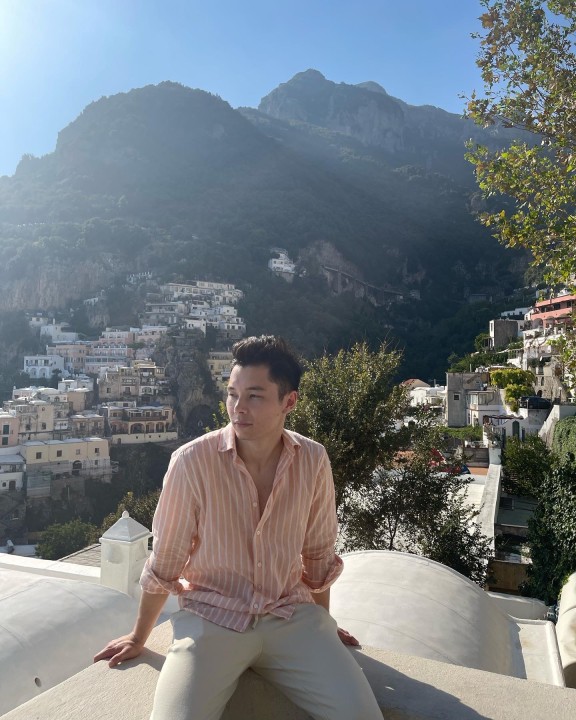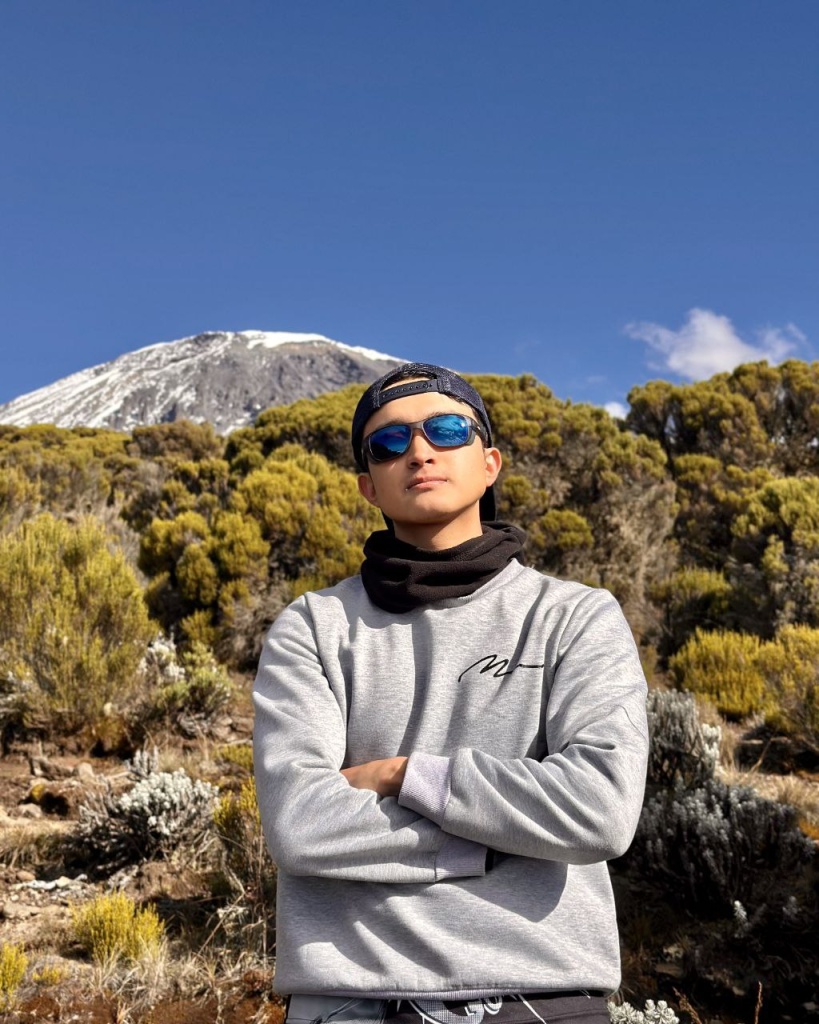Caltech is a research university focused on science and engineering. We spoke with Kazakhstanis who shared their experiences studying there — through PhD and summer research programs.
Bakdaulet Baitan, 27, city — Pasadena, PhD Student, linkedin

On choosing the university
I chose Caltech because my academic interests align with the research conducted by faculty here. I’m particularly interested in how historical state institutions shape political attitudes — a topic several professors at Caltech specialize in. Another important factor was my academic advisor, a Caltech alumnus, who strongly encouraged me to apply here.
On the application process
Applying for a PhD is a long process that takes several years of preparation. First, you need a strong background in math: linear algebra, real analysis, differential equations, and probability theory. Second, research experience is crucial — I worked for two years as a research assistant at the University of Chicago. Third, you must take the GRE and get a high score, especially in the quantitative section: at least 167 out of 170 for economics applicants. The most challenging part for me was writing the statement of purpose, where you must describe your research ideas briefly but meaningfully.
In PhD programs, recommendation letters play a decisive role. Academia is a small world, and professors often know each other personally, so strong letters from respected colleagues can make a big difference. Grades in advanced math courses are critically important, while performance in other subjects matters less. Extracurriculars can help but are secondary to academic results.
I prepared seriously for the GRE. I created a personalized study plan several months in advance. For the verbal section, I memorized around 3000 academic words. For the quantitative part, I used the NOVA’s GRE Math Bible and solved all 1800 questions in the 5 lb. Book of GRE Practice Problems.
On academic life
Studying in the U.S. is intense. I completed my undergraduate degree here and now I’m in graduate school. Without a structured study plan, it’s impossible to keep up. You must attend classes regularly, read the required materials carefully, and complete all assignments. As an undergrad, I studied about 8 hours a day, now as a PhD student, it’s 10-12 hours daily.
Our program is small — just five students — so we have close relationships with faculty. We’re on a first-name basis because they see us as future colleagues.
Professors are always open to questions. You can visit their office to discuss academic material or just talk about career plans and life in general.

In the U.S., students can work on campus up to 20 hours a week and do internships during breaks through the Curricular Practical Training program. Universities also host career fairs where students meet company representatives directly. At Caltech, there’s a strong emphasis on academic careers — most students become researchers. Unlike larger universities, there are fewer industry connections, but many opportunities for scientific work.
With a PhD degree, I can work in academia, the private sector, or international organizations. Academic careers are ideal for those who want to teach and do research. Industry offers high salaries: for example, Amazon hires PhD economists for entry-level roles starting at $300 000 per year. International organizations like the World Bank also actively recruit PhD economists and offer full support with visas, relocation, and family education.
Advice
Study hard, take part in olympiads and research conferences — these help you stand out. Strong English skills are essential, and you should score at least 6.5 on the IELTS. Most importantly, be proactive: show initiative through your involvement in projects and competitions.
The biggest mistake is choosing the wrong list of universities. Apply to both ambitious schools and safety options where your admission is almost guaranteed — otherwise, you may be left with nothing. Many also underestimate the importance of the statement of purpose, even though it’s often the deciding factor when comparing applicants.
Baglan Zharkenov, 22, city — Almaty, Product Manager at Zimran, linkedin

On choosing the program
I chose the Summer Science Program — SSP — because it's one of the most prestigious international STEM programs, running since 1959 with the support of Caltech and MIT. It offers a unique opportunity to engage in real scientific research rather than just studying theory. SSP is a chance not just to learn science, but to do science like real researchers.
On the application process
The application process is complex and highly competitive: over 1000 candidates apply from the U.S. and around the world. I had to complete an application form, write a personal statement, submit teacher recommendations, and demonstrate strong academic performance. The program selects not just academically capable students, but also highly motivated individuals ready for intensive work. When I applied, the acceptance rate was around 8%, and if I’m not mistaken, I was the first and only Kazakhstani to participate. I also received a full financial scholarship of about $4000.
Each track had different requirements — SSP offers four unique research areas: astrophysics, bacterial genomics, biochemistry, and synthetic chemistry. Each one immerses students in real university-level research. I chose astrophysics, a subject I’d been passionate about for years. The program expected strong knowledge of math and physics, basic programming skills, excellent academic records, and participation in research projects. Teamwork and leadership skills were also essential in such an intense research setting.
My application included transcripts, recommendation letters, a statement of purpose, and a portfolio of my projects. SAT or TOEFL scores were not required, but a high level of English proficiency was expected.
On the learning experience
We studied and worked for about 10 hours a day: learning astrophysics, writing code, running experiments, and analyzing real data.

There were no formal grades — the focus was entirely on research and team outcomes. Feedback was constant: mentors and professors guided us, discussed our mistakes, and helped us improve. In this kind of environment, you grow not under pressure, but through curiosity and engagement.
We worked with modern scientific tools and used Python, Jupyter, and Matplotlib.
Advice
The program changed how I view education. After SSP, I became more confident, launched my own startups, worked at NASA and a major bank, and became a product manager. I also realized that while I love astrophysics, it’s not the career path for me.
Don’t be afraid to apply, even if you're from a small town. I’m from Zhezkazgan, and everything is possible. The most important thing is to love science, embrace challenges, and be able to tell your story. Write strong essays, participate in projects, improve your English, and build self-confidence. The more you try, the more you win.